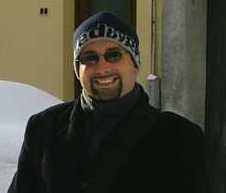A vision of Church
Be blessed!
Armando
---
Introduction
During the past days I have been involved in an internet discussion on a Spanish speaking forum. The subject of the discussion is referred to how church should be from a modern post-colonial and post-modern point of view. Of course, everyone has something to say, and I found inspiration there for today’s message. Someone told me a couple of days ago: Armando, God will speak to you in ways you don’t imagine, and believe me He did! As usual, I interchanged some ideas with David, who told me: speak about “identity and do ministry” … so that’s what you may expect today.
Acts 2:42-47 (The Message)
42They committed themselves to the teaching of the apostles, the life together, the common meal, and the prayers. 43Everyone around was in awe--all those wonders and signs done through the apostles! 44And all the believers lived in a wonderful harmony, holding everything in common. 45They sold whatever they owned and pooled their resources so that each person's need was met. 46They followed a daily discipline of worship in the Temple followed by meals at home, every meal a celebration, exuberant and joyful, 47as they praised God. People in general liked what they saw. Every day their number grew as God added those who were saved.
Today I want to speak about some of the basics of being church. And of course, we go back to the roots, to the basics, to the description of how the early church was. Explaining the context of the early church is an essay in itself. However, I want to give a general view on what was happening at that moment.
The church emerged as the result of God's decisive action within a particular people, Israel, their story and their historical context. The focal point of this action was Jesus--his ministry, death and resurrection. But there were challenges, setbacks and conflicts, as well as bursts of understanding, expansion and growth. All this happened in a diversity of cultures, perspectives and practices.
The account we got from Luke, in the Book of Acts must serve us as the main guideline to understand Church. But I may use it also to compare with our community, and how do we relate to that original idea of Church. We are walking forward to join a family of churches, and we need to know what our characteristics that may bless the whole network are.
Let us concentrate on the first verse:
42And they continued steadfastly (rotunda, categóricamente, fijamente) in the apostles' doctrine and fellowship, and in breaking of bread, and in prayers.
From this portion we get four pillars
Doctrine, Fellowship, Breaking the bread, Prayer
Doctrine
Having a sound biblical based doctrinal framework is one of the basics of our faith, and it goes back to the early church. As GNCG we have chosen for the Kingdom Theology to be our reference. This has implications on how do we perceive life, how do we relate to the environment and other people, how do we face our daily struggles. We believe that this was a central teaching, because Jesus spent the days after the resurrection explaining the mystery of the Kingdom to his disciples.
We cannot avoid doctrine, because it is the sound doctrine that creates the safe environment and limits for Christian life. In several passages, like Eph 4.14, Ro 6.17, 2Tes 2.15 the Apostle Paul warns us to keep the doctrine so that we are not influenced by strange teachings, that may look right but eventually will lead to division or error.
That is one of the reasons we had series on the Kingdom of God last year, and why we are studying this particular material in the Huiskringen. As the early believers, we want to be radically focused in doctrine, and assure you that you can count on it! We have the blessing of a theologian amongst us!
Fellowship
This is one of our keys as community. We are relational based. God made us relational people. God never thought that we should remain isolated, that’s not good! We believe that friendship is not only desirable, but an evidence of the Kingdom of God in our midst.
Friendship and fellowship is the right frame to be oneself, to be honest. We believe that in the community of believers we can be safely vulnerable, and that we don’t need to wear masks of religiosity. We can lower down our defensive walls. We are here to support and encourage each other. We learn to value the individual, his or her gifts, and do not judge the person. We understand that behaviours and attitudes often are the result of brokenness. We are here to accompany everyone in their way to find their identity in Jesus Christ. Our call is to do as Jesus: proclaim the good news of salvation, bind up the broken-hearted and set captives free.
How do we live fellowship? Mainly informally. This means that there is no structure for fellowship, and we encourage it as part of the normal Christian life. Forced things normally don’t work. I believe that one challenge for this year is to become more relational, to know each other, and walk together. We have to exercise being compassionate, loving, gentle and forgiving.
Breaking the bread
I think this has two aspects: the sacrament of the Holy Communion that we practice monthly in Church, and also often in the huiskringen. For the ancient Israelites, sharing the table with someone was a sign of deep friendship. We celebrate first of all that Jesus Christ came, saved us, and we proclaim His Second coming. We celebrate the intervention of the future in our lives. Secondly, we celebrate the gift of our community and the loving relations we have.
But there is other implication of breaking the bread, as it is explained further in verses 44-46. We celebrate joyfully, but we also care for the others. Though we are not actively doing social work, we welcome each other, saints and sinners in our midst. That’s the first step. Everyone is welcome, and we are progressing from a private club mentality to a Church mentality. Love is the driving force. God is love! Personally, I believe that the table is an excellent place to share our love for each other.
Prayer
Last but not least is prayer. Prayer is something that happens at two levels: individual and community. We encourage people to experience God first hand. This is only possible through a personal relationship with Jesus. We can read about the experiences of others; we can listen very good preachings on how God reveals Himself to others; but we all want the true thing, the personal experience. Eternal life is knowing God the Father, and Jesus-Christ (Jn 17.3)
We also practice community prayer. We pray for each other. We pray for the needs of every individual here. We pray for healing when it is needed, and we exercise the ministry of reconciliation: for example, I confess all my struggles and mistakes and sins to my accountability partner; then we pray together, and he ministers me the reconciliation with Jesus.
To finalise
Coming back to the basics means coming back to God’s original design for us. To come back to who we are in Jesus. As Church, we are in the process of experiencing what Church is like. Doctrine, Fellowship, Breaking of the bread and prayer are our pillars.


